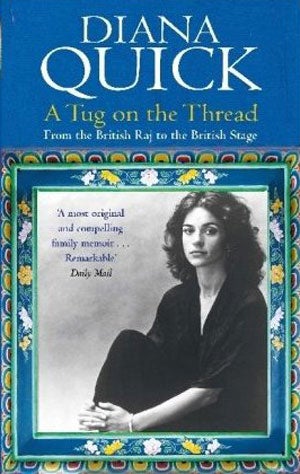A Tug on the Thread: From the British Raj to the British Stage, by Diana Quick

Raven-haired, stop-you-in-your-stride-eyed Diana Quick is just the kind of memoirist who would have readers flicking to the index for a pagination of juicy bits.
From her heady days at Oxford to her long-term romances with Albert Finney and Bill Nighy, via a notorious ocean-liner love scene in Brideshead Revisited, Quick's life would make vicariously joyful reading. However, this book is not that story. Rather, it is the well-researched tale of the blanketed past of her father's family, played out in the dying days of the Raj.
Quick's familial archaeology digs up plenty of skeletons and some peculiar details from the times. Her father and grandfather were both dentists, so we get a peak at the world of Indian molars along with the paternal spats. Of Quick, we learn only what is deemed appropriate to this history. Her career choices, she claims, have been influenced by the "thread of covering up" that winds through the branches of her family tree. For instance, Lady Julia Flyte, her most famous role, is "an outsider too: some of her relatives are dark and foreign". Ultimately, though, one would like more on the boys, the bottle and the love boat.
Join our commenting forum
Join thought-provoking conversations, follow other Independent readers and see their replies
Comments
Bookmark popover
Removed from bookmarks